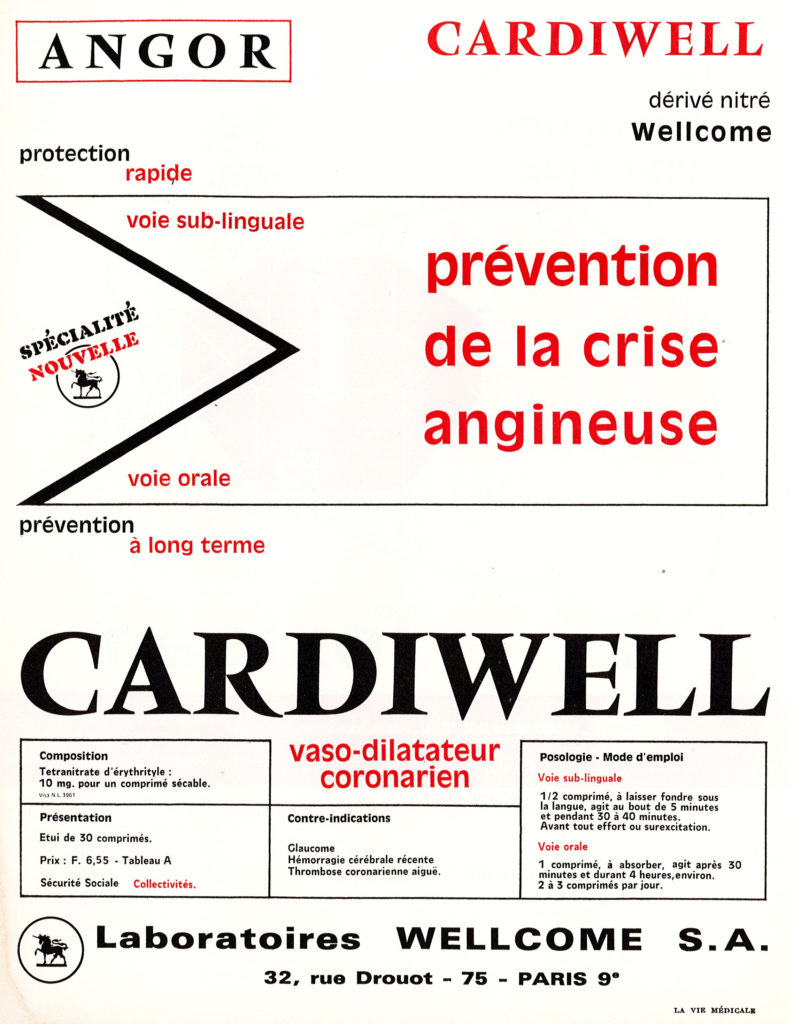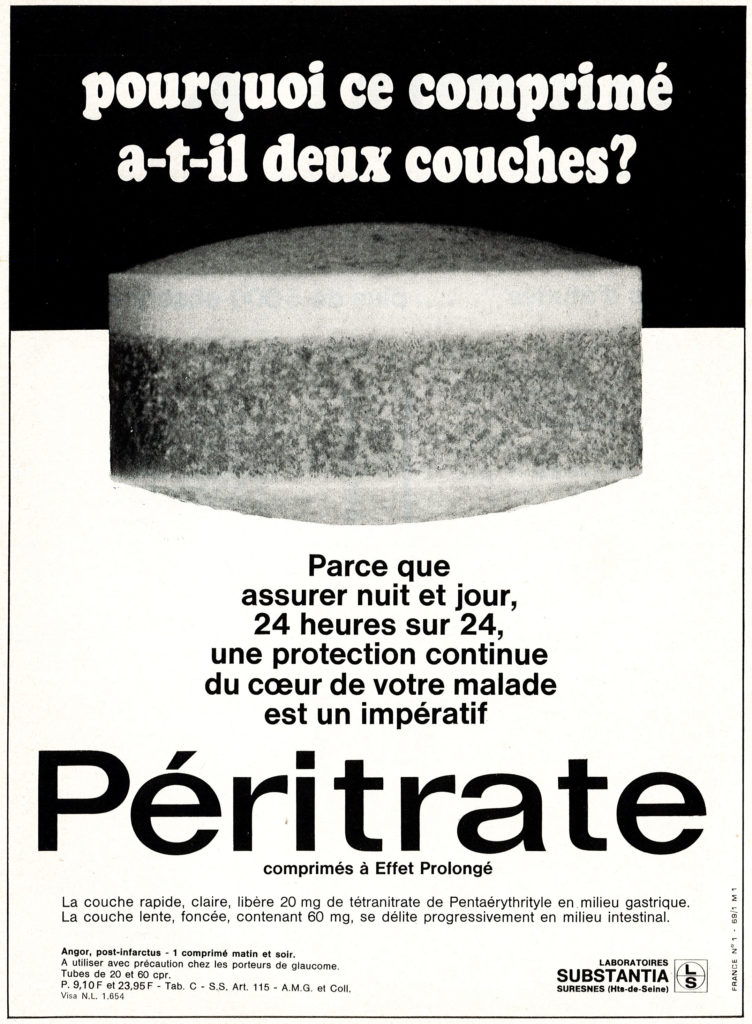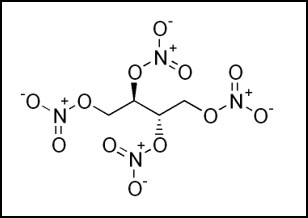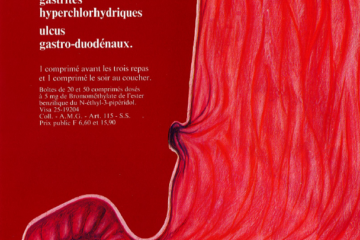The drug tablets Péritrate® and Cardiwell® were used for the prevention of angina pectoris. The two drugs contained the same active principle, penta-erythritol tetranitrate, which has been popular for more than a century for the treatment of angor. It remains used today in the relief of anginal pain. This organic nitrate can reduce the progression of lesion formation and endothelial dysfunction in patients with atherosclerosis. The compound has been shown to improve arterial hypertension and endothelial functions, notably via an induction of the antioxidant enzyme heme oxygenase (HO)-1. The drug has the capacity to stimulate antioxidant pathways.


Pentaerythrityl tetranitrate (PETN) is a nitric oxide (NO) donor, used to overcome the impaired NO bioavailability in patients with ischemic symptoms of angina (NO replacement therapy). PETN helps to release nitric oxide without development of nitrate tolerance. Similar to other nitrites and organic nitrates, erythrityl tetranitrate is converted to an active intermediate compound which activates the enzyme guanylate cyclase. This stimulates the synthesis of cyclic guanosine 3′,5′-monophosphate (cGMP) which then activates a series of protein kinase-dependent phosphorylation in smooth muscle cells, resulting in the dephosphorylation of the myosin light chain of the smooth muscle fiber. The subsequent release of calcium ions results in the relaxation of the smooth muscle cells and vasodilation. The compound has been considered also to prevent thromboembolic complications in congestive heart failure. PETN was one of the most commonly prescribed long-acting nitrate donors in the 1970s. It is still used today as a vasodilator for the prevention of angina in patients with coronary heart disease.



